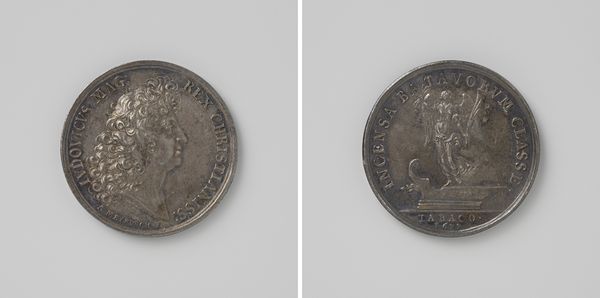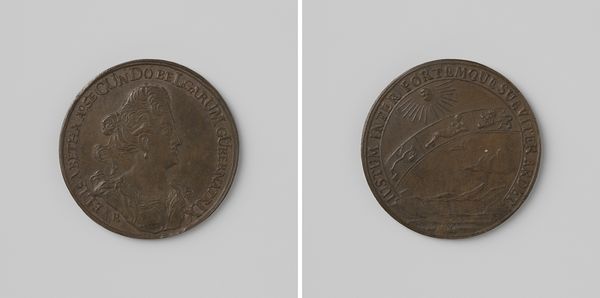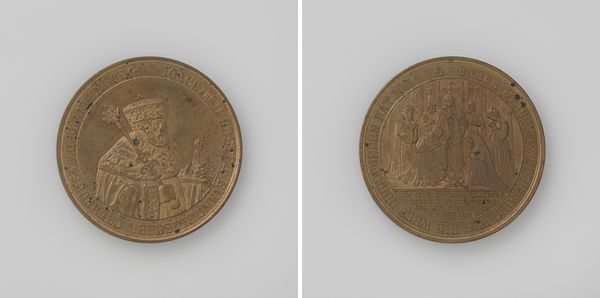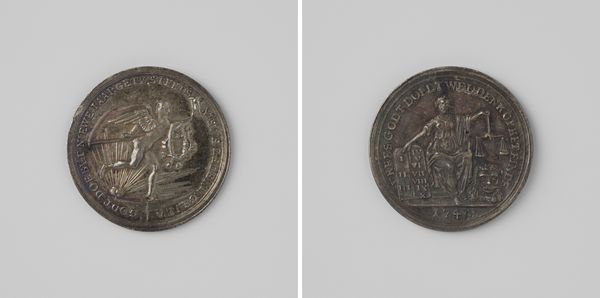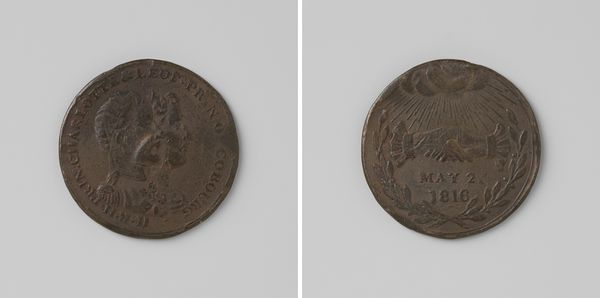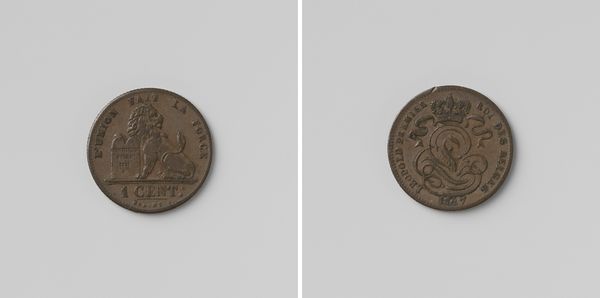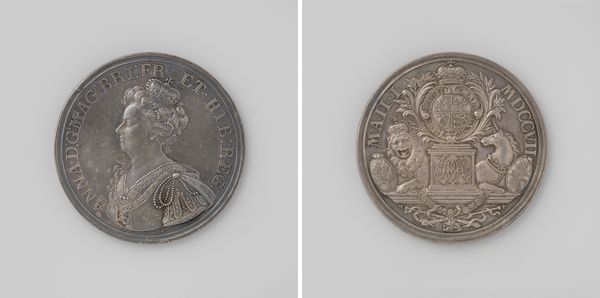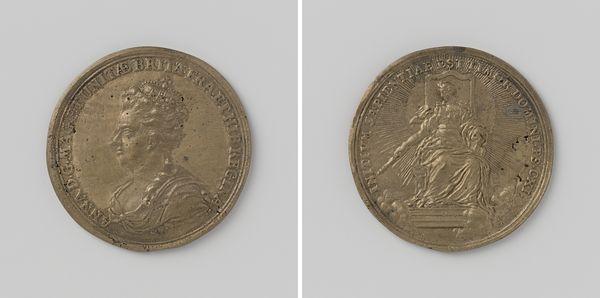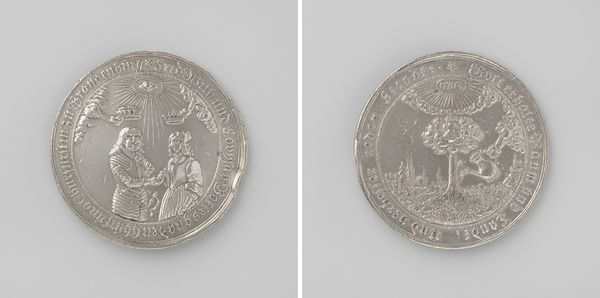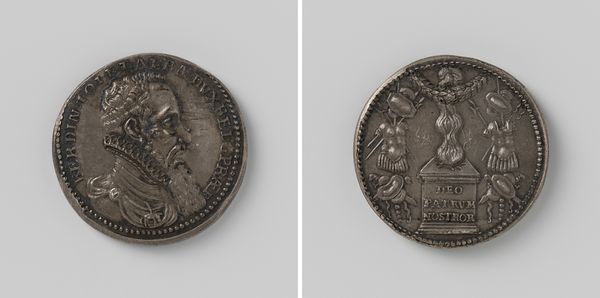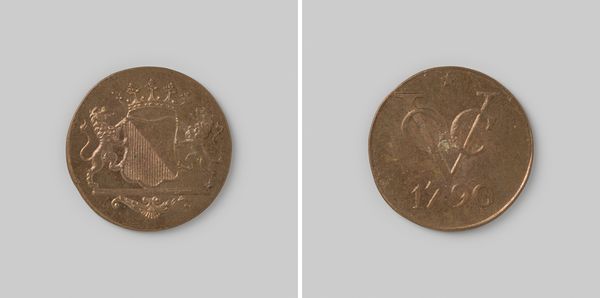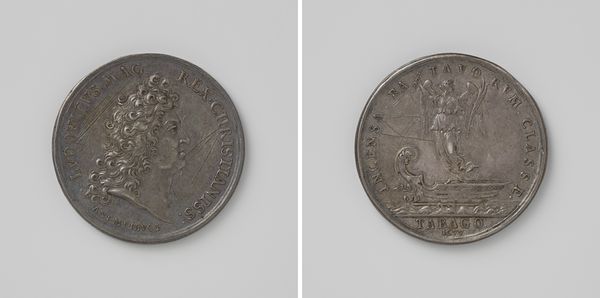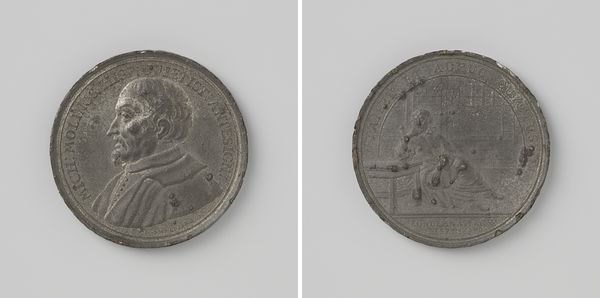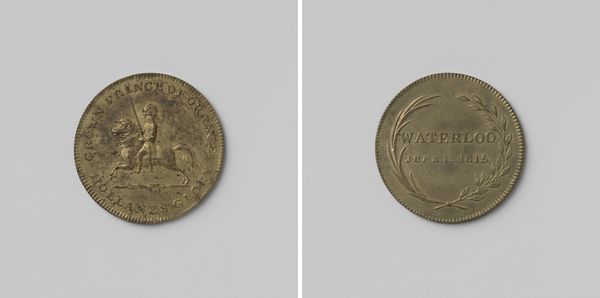
metal, bronze, engraving
#
portrait
#
medal
#
baroque
#
metal
#
bronze
#
history-painting
#
coin
#
engraving
Dimensions: diameter 2.6 cm, weight 7.79 gr
Copyright: Rijks Museum: Open Domain
This is a lead coin made in the Netherlands in 1697, commemorating the attempted assassination of William the Third by Sir George Barclay. The coin cleverly captures the politics of imagery. On one side, we see a portrait of William the Third, while the other depicts a bundle of arrows, symbolizing the failed assassination attempt. These arrows, broken and scattered, visually represent the defeat of the conspiracy against William. The choice of lead as a material may speak to a sense of the heavy weight of history and the seriousness of the event. The Dutch Republic, at this time, was a major European power and its leadership was critical to the balance of power. These kinds of artifacts allow historians insight into the anxieties and propaganda of the period. We can research these events through archival documents such as letters, pamphlets, and official records, shedding light on the complexities of 17th-century political life. The interpretation of art like this is always contingent on its social and institutional context.
Comments
No comments
Be the first to comment and join the conversation on the ultimate creative platform.
